The 10 Scariest Science Fiction Stories to Read In the Dark
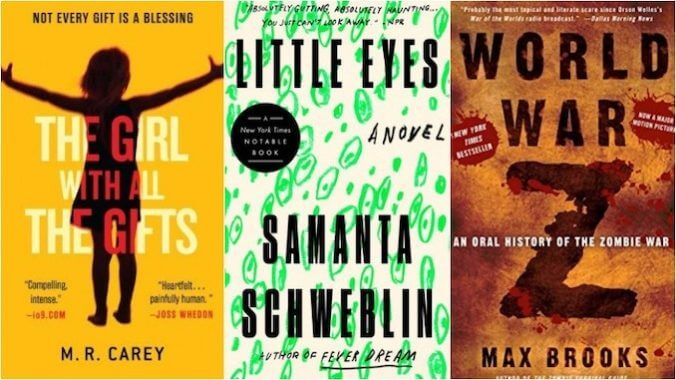
Spooky season and Halloween are usually a time for fantasy, where witches, hobgoblins, and evil spirits roam. But while everyone is dressing up as their favorite characters from fantasies, some of us are looking toward the genuinely scary stuff: ourselves and our technology. If you’re looking for something to keep you awake at night, put down the Hocus Pocus and pick up a bit of futuristic science fiction. There’s enough here to scare the pants off anyone.
Science fiction has a built-in horror component, especially when things go wrong. Even the most utopian science fiction can be scary, especially when the story starts digging deeper to show what kind of fascist repression goes into creating perfect societies. But when writers delving into the possibilities of modern society want to terrify, the technology is right there for the manipulating.
![]()
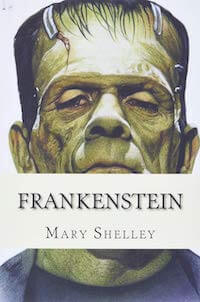 Frankenstein or The Modern Prometheus by Mary Shelley
Frankenstein or The Modern Prometheus by Mary Shelley
People love to credit men for inventing science fiction and horror, but Mary Shelley’s Frankenstein predates everyone, from Orson Wells to Jules Verne. And, as a story, Frankenstein has it all, the terror of the Monster, the cruelty of his creator, and people’s inhumanity towards anyone or anything that strikes them as different.
Over 200 years later, the novel is still as resonant and emotionally scarring today as it was when it was first published. The newest edition, published in 2020, is an annodated version and puts a lot of the Shelley’s tropes in the context of the time and details how ithe story has inspired centuries of writers since.
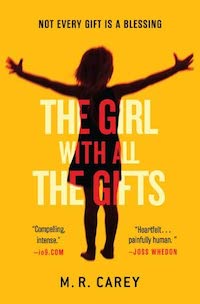 The Girl with All the Gifts by M.R. Carey
The Girl with All the Gifts by M.R. Carey
M.R. Carey’s The Girl with All the Gifts is the tale of a scientist and a teacher who embark on a journey of survival in a post-apocalyptic world with a “special” young girl named Melanie, whose talents have caused her to spend her life locked down, tortured and shunned. Now humanity’s survival depends on her capacity to forgive them.
One of the most disturbing books I’ve ever read, this is one of those stories that stays with you no matter what. From the moment Melanie is brought out, Harrison Bergeron-style, to the final breakthrough, this is a gripping page-turner.
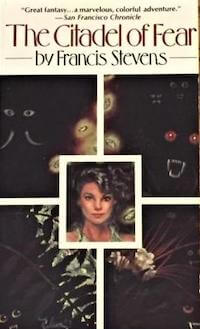 Citadel of Fear by Francis Stevens
Citadel of Fear by Francis Stevens
I deliberately left H.P. Lovecraft off this list because the person who invented “Lovecraftian horror” is Gertrude Barrows Bennett. She wrote under the pseudonym of Francis Stevens. A female writer who was publishing well before Lovecraft, Bennett’s Citadel of Fear features two gold prospectors in the jungles of Mexico who stumble across a lost Aztec city and cause an ancient evil to be unleashed.
Citadel of Fear is a pulp thriller that exemplifies the best of this era of science fiction before space exploration forever changed its primarily earth-bound focus. It also argues that Bennett was a better writer than Lovecraft.
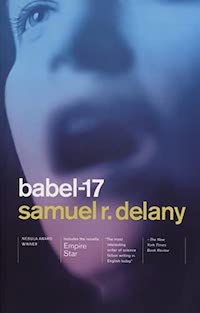 Babel-17 by Samuel R. Delany Jr.
Babel-17 by Samuel R. Delany Jr.
Most people have heard of Flowers for Algernon, which won the Nebula Award for Best Novel in 1967. But that win was actually a tie, with Samuel R. Delany Jr.’s Babel-17. This future-set novella takes the Sapir-Whorf hypothesis, that language influences thought and perception, to its logical endpoint, where the language dubbed “Babel-17,” is a weapon used in an interstellar war.
The problem is that those who learn it become their own enemy and attempt to murder anyone around them, regardless of side. A terrifying story of the uselessness of war where human beings are the weapon.
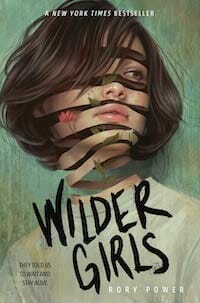 Wilder Girls by Rory Power
Wilder Girls by Rory Power
Set at an all-girls school on an island, the students who survive a plague that wipes out all their teachers are terrified to venture beyond its walls, believing the rest of the world to be dead. But when one goes missing, her friend braves “the tox” to find her, only to discover something genuinely shocking.
A female take on Lord of the Flies, readers should be warned Rory Power’s Wilder Girls is one of the goriest novels on this list. This is definitely a story for the strong of stomach.
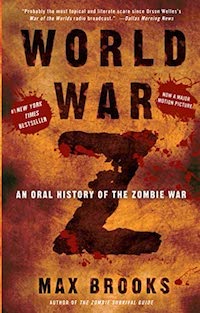 World War Z: An Oral History of the Zombie War by Max Brooks
World War Z: An Oral History of the Zombie War by Max Brooks
There’s a reason that fans are wild for a World War Z adaptation, and there’s an even better reason why they all fail. This zombie apocalypse story is one of the most ingeniously structured, with each section made up of a collection of individual accounts. The decade-long desperate struggle against the undead is retold via first-person reports from people across the globe, not all of whom are the most reliable of narrators.
World War Z is a tough read. However, in a genre were western viewpoints are usually the only ones heard, this one gets credit for considering all the different aspects of how a global horror catastrophe unfolds, east to west, north to south and from the oceans all the way to the planet’s orbit.
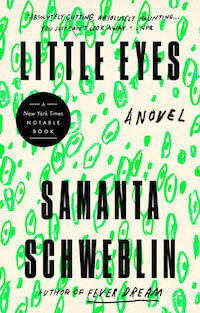 Little Eyes by Samanta Schweblin
Little Eyes by Samanta Schweblin
A story of consumerism meets corporate surveillance and voyeurism in Samanta Schweblin’s Little Eyes, which conjures up “kentukis,” the adorable must-have stuffed animals that follow you everywhere. But their camera eyes are connected to a single global server which allows those who wish to be the kentuki to enter any pet and live as someone’s plaything.
At first, it all seems like a force for good, giving far-flung people windows into worlds they’d never see. But as the novel continues, the threads of good start to unravel as obsessions turn to madness and the kentukis show just how evil humans can be.
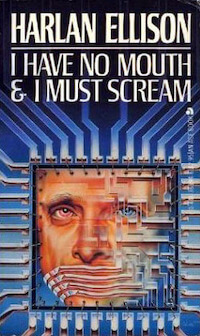 I Have No Mouth, and I Must Scream by Harlan Ellison
I Have No Mouth, and I Must Scream by Harlan Ellison
Somehow the shorter the sci-fi horror tale, the more punch it often packs. Harlan Ellison’s famous short story I Have No Mouth, and I Must Scream is all of 6000 words tells the story of a post-apocalyptic landscape dominated by a single supercomputer, called AM (as in “I think therefore I”). AM has wiped out all of humanity except for a chosen few, which it entertains itself with by torturing.
Told from the perspective of one of those survivors, the portrait of a rageful computer and the humans it holds captive is a nightmare of both mind control and body horror.
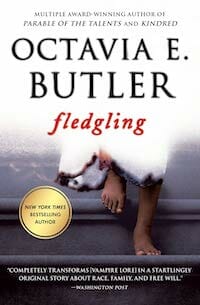 Fledgling, a Novel by Octavia Butler
Fledgling, a Novel by Octavia Butler
Fledgling is perhaps one of Octavia Butler’s most terrifying works. Her last novel, published in 2005, is a vampire story, but a genetically modified one living in a near future. Shori is initially introduced as a ten-year-old Black girl, but quickly shoots down that theory with her penchant for blood drinking,. Eventually, it unfolds she’s actually a 53-year-old member of the Ina.
Unlike most vampire stories, where deviance is a metaphor for repressed human societies, here the Ina coexist with humanity and are as bigoted against them as humans are against their blood-drinking kind. It’s a fascinating fusion of horror and science fiction, and the most unusual take on vampires I’ve ever read.
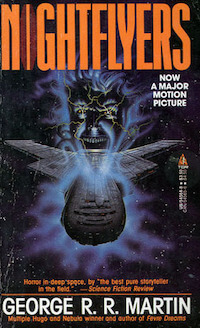 Nightflyers by George R.R. Martin
Nightflyers by George R.R. Martin
Recently republished under Nightflyers and Other Stories after the success of Game of Thrones, Martin’s “in space no one can hear you scream” horror novella is what happens when you take Star Trek and Alien and fuse them together.
In it, the space-faring Federated Nations of Earth long ago embraced fascism and became the Federal Empire before collapsing. In the aftermath, humans are looking to locate the volcryn, an enigmatic alien species, whose warp drive is superior to their own.
Nightflyers is an early example of the ways Martin would go on to regularly deconstruct accepted genre tropes, in much the same way he does to fantasy in A Song of Ice and Fire. Here, he’s taking on the utopian dream of a united Earth traveling harmlessly through space seeking to quench its curiousity, poking holes in the fantasy of humans as heroes by exploring just how horrifically selfish we can be.
Ani Bundel is a TV and movie writer at Elite Daily covering all things peak TV and an Associate Editor at PBS/WETA’s Telly Visions, where she co-hosts a weekly podcast by anglophiles for anglophiles. A self-taught journalist from the school of hard knocks, Ani came up blogging in the fast-turn-around era. Ani’s other regular bylines can be found on NBC News THINK.







































